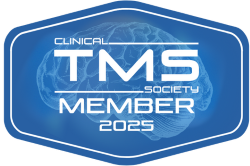
JOIN US! TMS Education Event - Tuesday, April 9th 5:30pm pst - Click to learn more!
Obsessive Compulsive Disorder
TMS for OCD
Obsessive-Compulsive Disorder (OCD) is a mental health condition characterized by persistent, unwanted thoughts (obsessions) and repetitive behaviors or mental acts (compulsions) that an individual feels driven to perform. These obsessions and compulsions can significantly interfere with daily life and cause considerable distress. Anywhere between 60-90% of individuals with OCD also have a comorbid mental disorder, including mood, anxiety, somatoform disorders, substance use disorders, psychotic disorders, and bipolar disorders.
Types of OCD
OCD can manifest in various forms, often categorized by the nature of the obsessions and compulsions. A few of these forms include:
- Contamination Obsessions with Cleaning Compulsions: Fear of germs or contamination leading to excessive cleaning and washing.
- Symmetry Obsessions with Ordering Compulsions: A need for things to be perfectly aligned or in a specific order.
- Forbidden Thoughts or Sexual Obsessions: Unwanted, intrusive thoughts, often of a sexual, religious, or aggressive nature.
Traditional Treatments for Eating Disorders
Traditional treatments for Obsessive-Compulsive Disorder (OCD) typically include a combination of psychotherapy, medication, and sometimes, other supportive therapies. These treatments aim to reduce the severity of OCD symptoms, improve functioning, and enhance the quality of life. The mainstays of traditional treatment for OCD are:
- Exposure and Response Prevention (ERP): This is a specific type of CBT that is considered the most effective psychotherapy for treating OCD. ERP involves gradually exposing the patient to feared objects or ideas (exposure) and teaching them healthy ways to cope with the anxiety that arises, without resorting to compulsive behaviors (response prevention).
- Selective Serotonin Reuptake Inhibitors (SSRIs): These are the first-line medications for OCD. They include drugs like fluoxetine (Prozac), fluvoxamine (Luvox), sertraline (Zoloft), and paroxetine (Paxil). SSRIs can help reduce the obsessions and compulsions of OCD but may take several weeks to start showing effects.
Benefits of Accelerated TMS for OCD
- Targeted Treatment: Directly stimulates parts of the brain associated with OCD, potentially reducing the intensity of both obsessions and compulsions.
- Non-Pharmacological Approach: A viable alternative for those who cannot tolerate or do not respond to medications.
- Safe and Well-Tolerated: Generally has fewer side effects compared to pharmacological treatments.
What patients are saying
"Desperate and struggling, my therapist recommended TMS. With an open mind and cautious optimism, I tried it. In just five days, my anxiety improved significantly. The clinic staff was fantastic, offering counseling and education on anxiety. The whole experience, including aftercare and follow-up, made a huge difference. I wholeheartedly recommend Accelerated TMS at Kind Health Group. Thank you, Dr. Nanos, and your amazing team"
Fitzsimmons, S. M. D. D., Postma, T., van Campen, A. D., Vriend, C., Batelaan, N. M., van Oppen, P., Hoogendoorn, A. W., van der Werf, Y. D., & van den Heuvel, O. A. (2023). TMS-induced plasticity improving cognitive control in OCD I: Clinical and neuroimaging outcomes from a randomized trial of rTMS for OCD. medRxiv : the preprint server for health sciences, 2023.11.04.23298100. https://doi.org/10.1101/2023.11.04.23298100
Abstract Summary: This study compares clinical outcomes and changes in task-based brain activation following three different rTMS stimulation protocols combined with exposure and response prevention (ERP) in treatment-refractory adult OCD patients. The study found significant symptom improvement related to activation decreases in targeted task networks, although no differences in symptom reduction between groups were observed.
Rostami, R., Kazemi, R., Jabbari, A., Madani, A., Rostami, H., Taherpour, M., Molavi, P., Jaafari, N., Kuo, M., Vicario, C., Nitsche, M., & Salehinejad, M. (2020). Efficacy and clinical predictors of response to rTMS treatment in pharmacoresistant obsessive-compulsive disorder (OCD): a retrospective study. BMC Psychiatry, 20, 372.
https://doi.org/10.1186/s12888-020-02769-9
Abstract Summary: The study retrospectively investigates the efficacy of repetitive transcranial magnetic stimulation (rTMS) over the dorsolateral prefrontal cortex (DLPFC) or supplementary motor area (SMA) in 65 pharmaco-resistant OCD outpatients. The patients received either SMA rTMS or bilateral DLPFC rTMS based on their affective and depressive symptoms in addition to primary OCD symptoms. The study aimed to identify clinical predictors of rTMS response to increase clinical efficacy. Results indicated a significant decrease in OCD symptoms and anxiety/depression states following rTMS treatment, with 46.2% of all patients responding to rTMS based on at least a 30% reduction in Yale-Brown Obsessive-Compulsive Scale (Y-BOCS) scores. The study found no significant demographic predictors of rTMS efficacy but identified certain factors and items of the Y-BOCS that significantly predicted response to rTMS. The study concludes that rTMS might have superior effects in patients with less intrusive/interfering thoughts and low scores in specific obsession and resistance factors.
If this is a life-threatening emergency, please call 911 or the National Suicide Prevention Lifeline














































